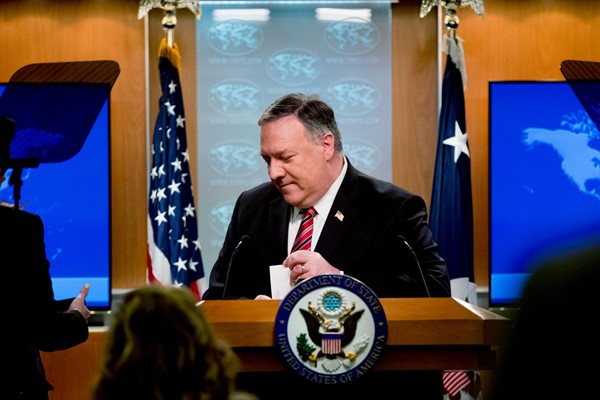Whether the world knows it now or not, how the U.S. Congress handles the White House’s abrupt firing of the State Department’s top watchdog could be more than a make or break moment for the future of “America First” diplomacy. It could also determine the trajectory of American presidential politics for years to come. If Secretary of State Mike Pompeo survives the escalating scandal surrounding President Donald Trump’s decision last week to force out State Department Inspector General Steve Linick—at Pompeo’s request—Pompeo’s much-anticipated run for the presidency in 2024 is all but assured.
On Wednesday, Pompeo bluntly stated in a televised press conference that he had been wanting to fire Linick for quite a while, openly acknowledging that he had advised Trump to get rid of the one congressionally approved official charged with looking into fraud, waste and abuse at the agency Pompeo oversees. Pompeo’s defiant and stunningly arrogant admission came on the heels of news reports that he pushed for Linick’s ouster in part because the inspector general’s investigation into controversial U.S. arms sales to Saudi Arabia was getting too close for comfort to the secretary of state and his inner circle.
Given Pompeo’s presidential ambitions, and all that is at stake for the future of American diplomacy, it is imperative that Congress and the press, as well as civil society organizations committed to government oversight, are more aggressive in their scrutiny of the record of what went down with that “emergency” Saudi arms deal, which bypassed Congress. At issue from a congressional point of view is whether officials in the State Department’s Bureau of Political-Military Affairs and other sub-departments improperly overrode a vote by Congress last summer to block the sale of $8.1 billion in arms to Saudi Arabia.

